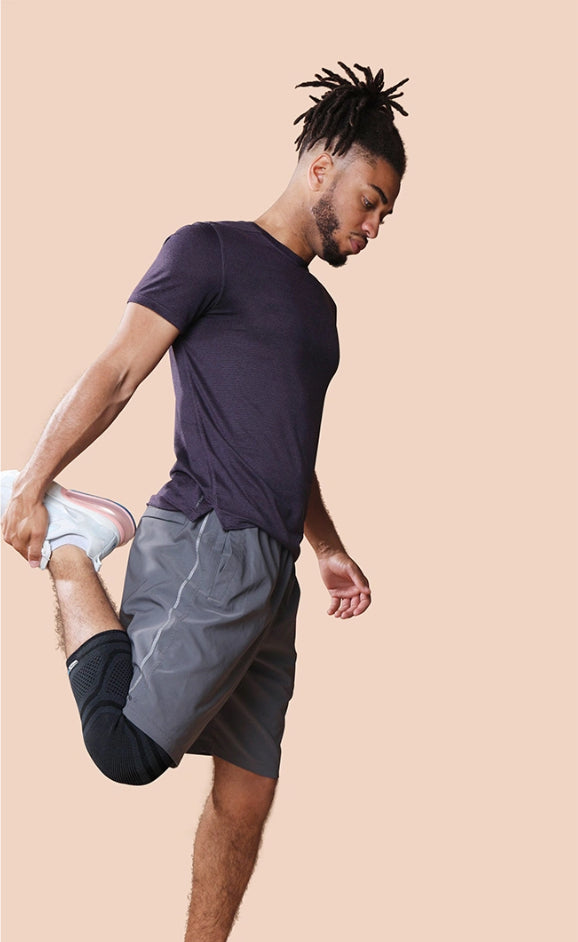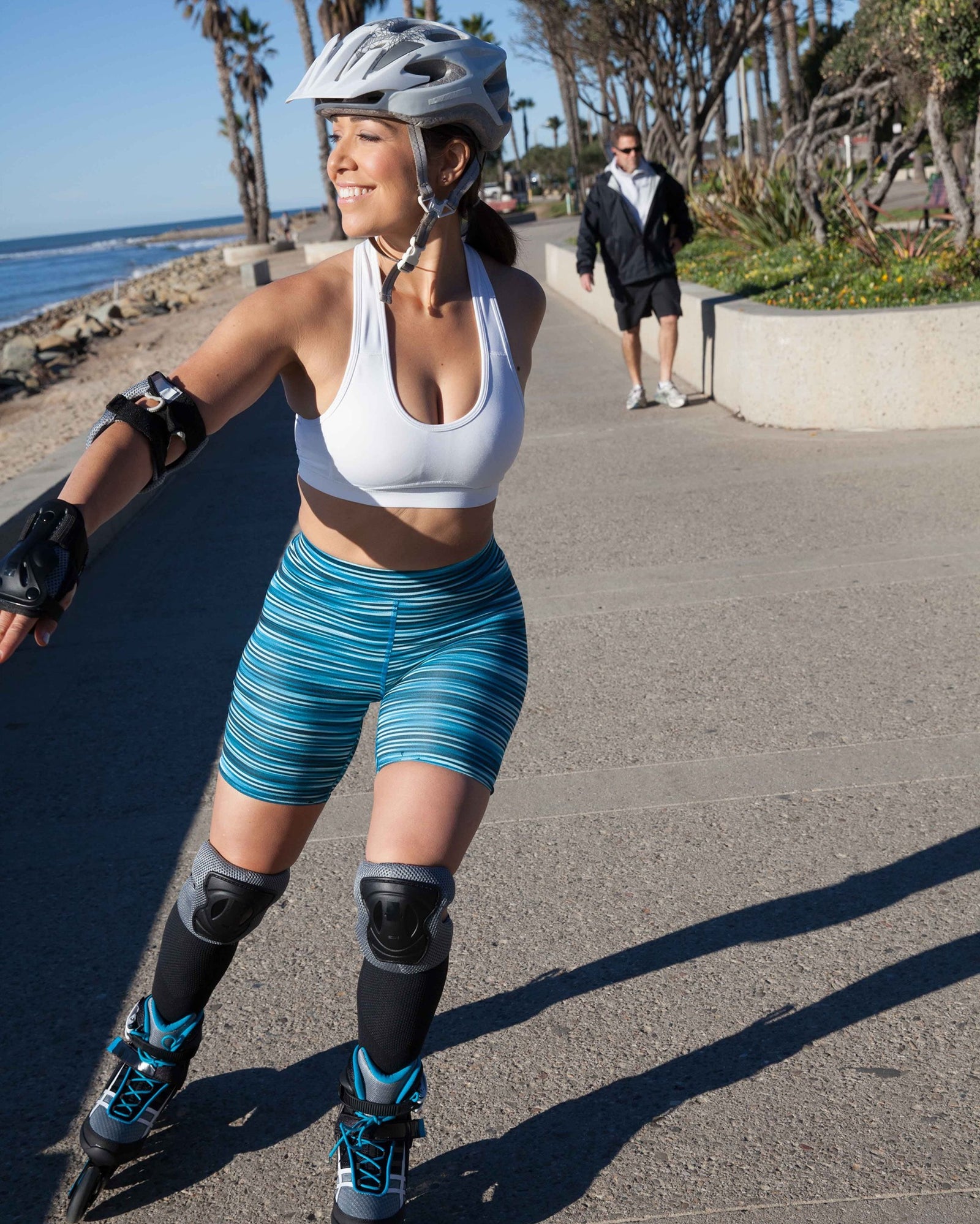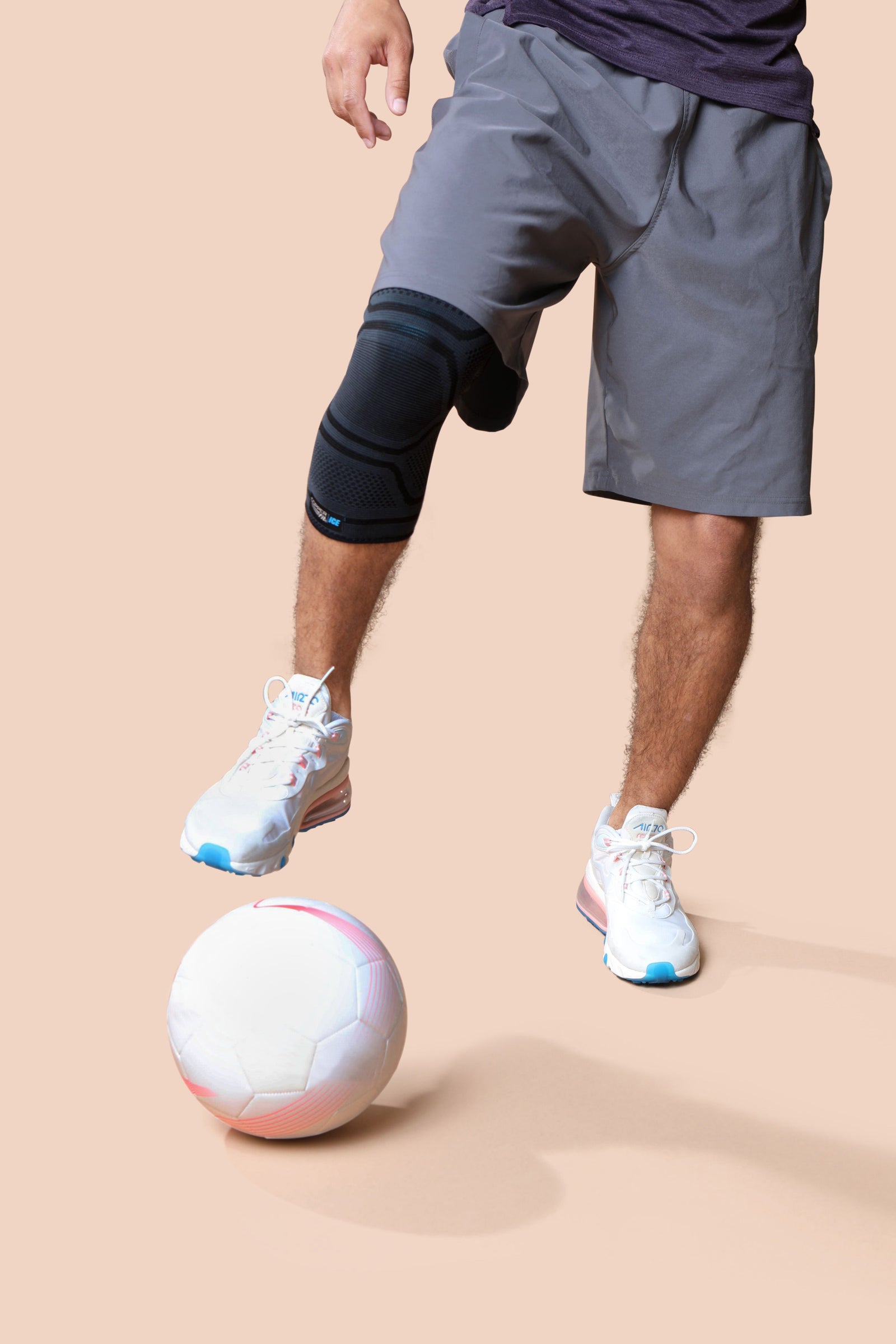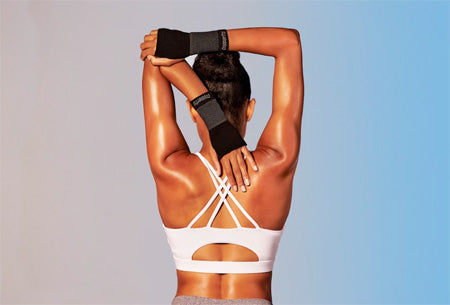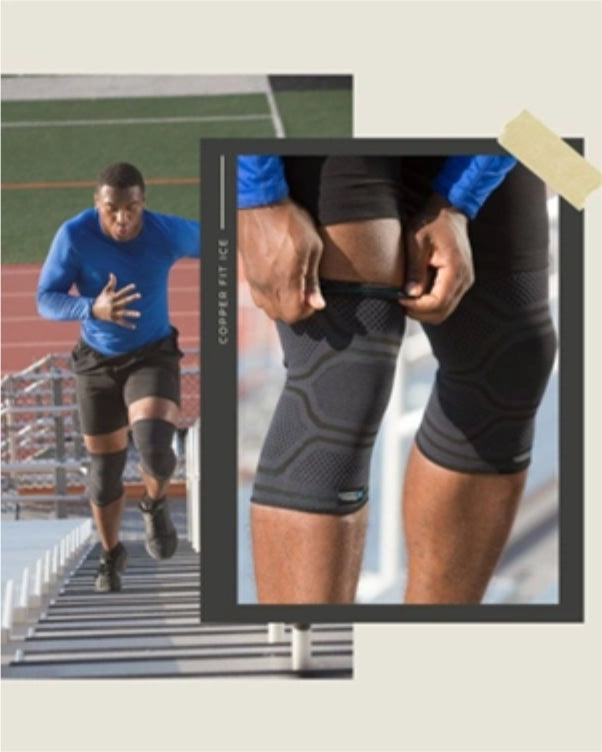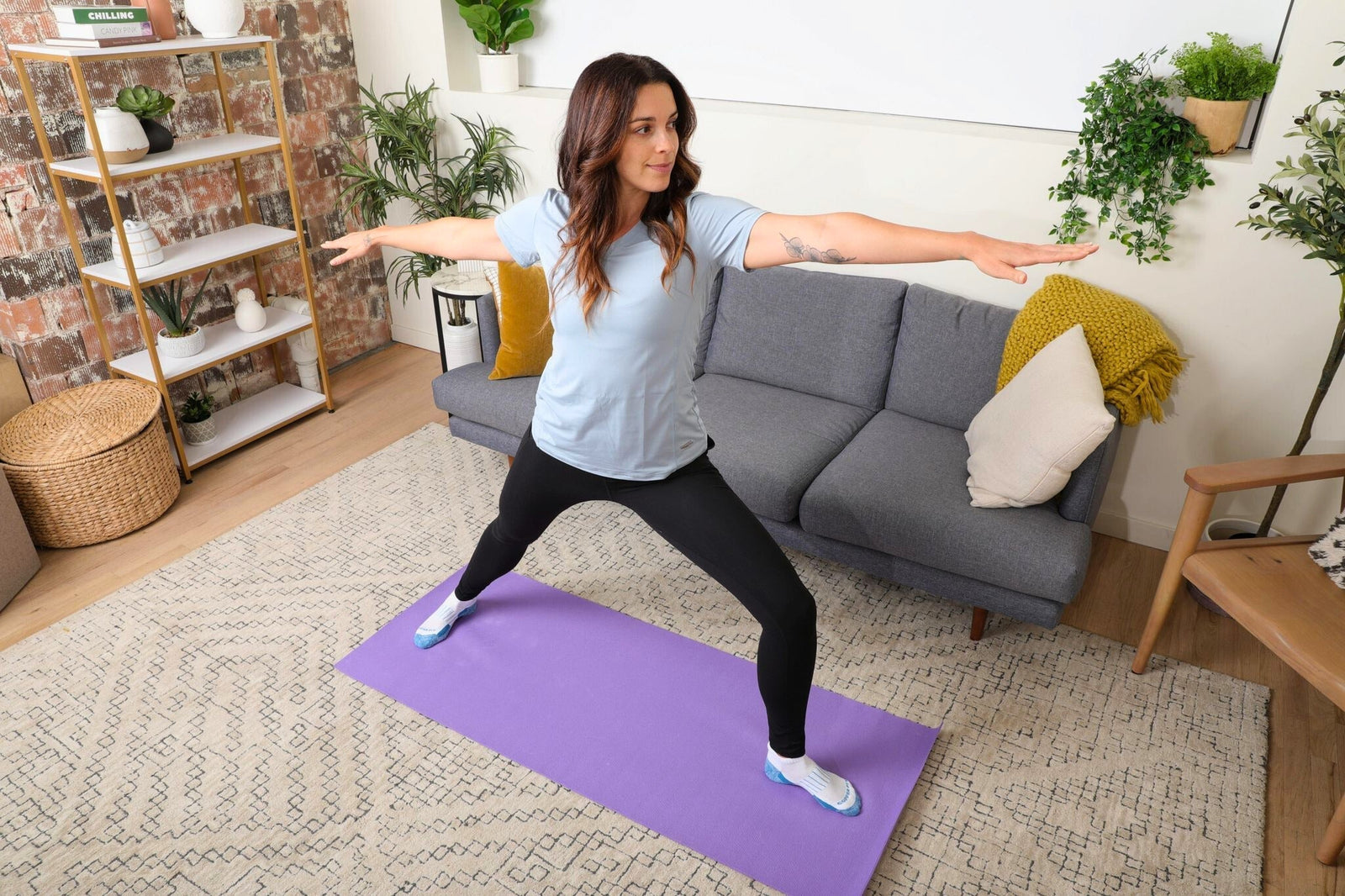
If your knees make noise every time you sit, stand, or bend, it may be a little concerning. But the truth is, knee popping is incredibly common, especially for people who live active lives or are just getting back into movement. In most cases, it’s not something to worry about. But it is worth understanding why it happens.
Your knees are some of the hardest-working joints in your body. They support your weight, help you change direction, absorb impact, and keep you moving all day. So, if they make the occasional pop, crack, or click, it could be their way of letting you know that something's shifting, releasing, or just readjusting as you move.
Let’s break down what’s actually going on when your knees pop and what it could mean for your body.
What Is Knee Popping, Really?
Knee popping—also called “crepitus”—refers to any audible clicking, snapping, or cracking sound that happens in or around your knee joint. It can happen during squats, when you get up from sitting, while climbing stairs, or just walking.
Sometimes, it’s loud. Sometimes, it’s subtle. Sometimes, it comes with a feeling of release, and sometimes, it’s completely silent—just a sensation. In many cases, it’s painless and harmless.
But if that popping is accompanied by soreness, stiffness, or instability, it’s a signal to pay attention. The goal is to understand why it’s happening and give your joints the support they need to keep moving comfortably.
What Can Cause Knee Popping?
Knowing the potential reasons behind knee popping can help you understand what your body is trying to communicate and how to best respond.
1. Gas Bubbles in the Joint
One of the most common (and completely harmless) reasons your knees pop is the release of gas bubbles inside the joint. Your knees are filled with synovial fluid, which helps lubricate the joint and support smooth movement. When the joint changes position quickly, pressure can shift and cause small gas bubbles to form and collapse—creating a popping sound.
This usually doesn’t come with any discomfort. It’s just part of how your body regulates pressure within the joint. If this is the kind of popping you notice most, there’s typically no reason to be concerned.
2. Tendons or Ligaments Moving
Another common cause of popping is when a tendon or ligament snaps slightly as it moves over a bone or other structure. This can happen when you bend and straighten your knee, especially if you’re doing deep squats or lunges. As the tissues move back into place, they can make a popping or clicking noise.
This type of knee popping can be totally normal, especially if it’s not paired with any soreness or swelling. If the sound becomes more frequent or starts to feel uncomfortable, though, it may be a sign that the surrounding muscles need more support or flexibility.
3. Tight Muscles and Tension
Tight muscles around the knees—especially in the hips, quads, and hamstrings—can affect how your joints function. When these muscles are stiff, they can pull unevenly on the tendons and change the way the joint moves. That tension can create popping noises during everyday movements like walking or standing up.
This is one of the most manageable causes of knee popping. Incorporating mobility work, stretching, and regular movement into your routine can help ease the tightness and support more comfortable joint motion.
4. Weak or Imbalanced Leg Muscles
Strong, balanced muscles are key to healthy joints. If certain muscle groups around your knees are weak—like your quads, hamstrings, or glutes—it can lead to imbalances in the way your knee moves and absorbs force.
When your body overcompensates for weakness, you might hear or feel more popping during physical activity. This doesn’t always lead to soreness, but it can increase tension over time. Building strength evenly throughout your lower body helps stabilize the joint and reduce unnecessary strain.
5. Overuse or Repetitive Strain
Repetitive motions—like running, jumping, or even kneeling—can lead to overuse of the knee joint. When the tissues around your knee are stressed frequently without enough recovery, they can become irritated or inflamed. This may lead to changes in how the joint moves, which can cause a popping sound during activity.
If you’re noticing more popping after intense workouts or long days on your feet, it might be a sign your knees need a little more rest, recovery, or support. Listening to your body in those moments can help you stay active without pushing through discomfort.
6. Lingering Effects of an Old Injury
If you’ve ever had a knee injury—whether it was a minor strain or something more serious—it can leave behind changes in the joint. Scar tissue, cartilage wear, or structural changes can all contribute to recurring knee pops long after the initial injury has healed.
This doesn’t mean something’s wrong. But it does mean your knees might benefit from extra care, including strengthening exercises, supportive gear, and recovery tools that help you stay mobile without adding stress to the joint.
7. Joint Stiffness From Inactivity
Knees that don’t move enough tend to get stiff. When they do finally move, they can make a loud pop or snap as the joint releases. This is especially common after sitting for long periods or during the first few steps in the morning.
The good news? Regular, low-impact movement and stretches throughout the day can help. The more you give your knees a chance to move naturally, the less likely they are to feel stiff or pop unexpectedly.
When To Be Concerned About Knee Popping
For most people, knee popping isn’t a big deal—especially if it’s not paired with discomfort. But it’s still important to pay attention to how your body feels during and after movement.
If your knees pop regularly and you also notice any of the following, it may be worth checking in with a healthcare provider:
- Swelling or warmth around the joint
- Persistent soreness or stiffness
- Reduced range of motion
- Feeling like the knee might “give out”
- Grinding sensations or locking during movement
These signs can indicate that your knees are working harder than they should—or that the joint isn’t functioning as smoothly as it could. Getting ahead of these issues can help you avoid long-term setbacks and keep your knees strong, supported, and mobile.
Tips for Supporting Healthy Knee Function
Whether your knees pop occasionally or you’re looking to keep them strong for the long haul, there’s a lot you can do to support their health. Small changes to your daily routine can add up to better mobility, less tension, and improved recovery.
Stay Consistently Active
Movement keeps your joints nourished and functioning the way they’re designed to. If your knees feel stiff after sitting for long periods, that’s a sign they need more movement, not less. Daily walks, stretching routines, or low-impact activities like cycling can go a long way in keeping your knees engaged.
Regular activity also helps maintain strength in the surrounding muscles—especially your quads, hamstrings, and calves—which all help stabilize the knee joint.
Focus on Muscle Balance
One of the most common causes of knee popping is muscle imbalance. When certain muscles around your knees are tight or weak, it can affect the way your joints move.
Strengthening your legs evenly helps support natural alignment and reduces the extra strain that can lead to tension or discomfort. Look for exercises that target both the front and back of your legs—bodyweight squats, step-ups, bridges, or resistance band work are a good place to start.
Always move with control, and pay attention to how your knees feel during and after your workout. If something doesn’t feel right, dial it back and allow your body time to recover.
Stretch and Warm Up
Prepping your body before activity helps protect your joints. Stretching tight muscles around the hips, thighs, and calves improves flexibility and can reduce the snap or pop that happens when tissues glide over bones.
A proper warm-up increases circulation and helps your body ease into movement with better coordination and support. Even five minutes of gentle movement before a workout or a walk can make a difference.
Afterward, cooling down with stretches and gentle mobility work can promote muscle relaxation and support recovery. Recovery matters just as much as the activity itself—especially if you’re dealing with sore, tight knees.
Use Compression Therapy When Needed
Sometimes, your knees need a little extra support—especially after intense activity, long days on your feet, or if you're just getting back into movement.
Compression gear like knee sleeves and knee braces can help soothe discomfort by supporting healthy circulation. It’s especially useful during recovery days or when you need to stay active but want a little more stability. Look for sleeves or braces that are designed to be flexible, breathable, and supportive without restricting your natural movement.
Don’t Ignore Recovery Days
It’s easy to get caught up in pushing yourself to stay active, but rest is part of the plan, too. Your body does important work when you’re not moving—rest days give your muscles and joints the time they need to recover and rebuild.
Use recovery days to focus on gentle movement, hydration, sleep, and body awareness. If you’re using supportive gear, it’s a great time to put it to work—helping you relax, reset, and come back stronger.
You’ve Got Options—and the Power To Keep Moving
Knees that pop might sound dramatic, but most of the time, they’re just part of how your body responds to daily movement. Staying active, strengthening key muscles, and listening to your body are some of the most effective ways to keep your knees healthy and supported.
The more you learn about what’s going on inside your joints, the easier it is to stay ahead of the small things before they become bigger issues. Whether you’re working out, walking the dog, or just getting through a long workday, your knees are designed to move—and with the right care, they’ll keep showing up for you.
At Copper Fit, our copper-infused compression sleeves, compression socks, and supports are designed to encourage comfort, stability, and circulation during activity or recovery. Every step you take to support your body—big or small—adds up. And that’s what matters most.
Sources:
What Does a Pop in Your Knee Mean? | HSS
Musculoskeletal Pain: What It Is, Symptoms, Treatment & Types | Cleveland Clinic
The effect of physical activity on the knee joint: is it good or bad? | PMC

